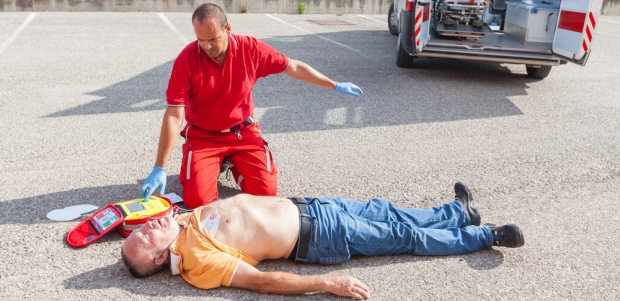Community, Leadership, Experimentation, Diversity, & Education
Pittsburgh Arts, Regional Theatre, New Work, Producing, Copyright, Labor Unions,
New Products, Coping Skills, J-O-Bs...
Theatre industry news, University & School of Drama Announcements, plus occasional course support for
Carnegie Mellon School of Drama Faculty, Staff, Students, and Alumni.
CMU School of Drama
Wednesday, September 02, 2015
Emphasize Calling 911 When an Emergency Occurs
Occupational Health & Safety: Most of the time when an emergency strikes, it isn't in a hospital, where medical professionals can jump into action within moments. It happens at home, in a public shopping center, inside an airport, or at work.
Subscribe to:
Post Comments (Atom)

3 comments:
The three biggest things I got from this article are to 1). Recognize an emergency quickly, 2). act quickly and calmly, and 3). make emergency preparedness part of daily routine at the workplace. They’re those kind of things that seem so simple that it is easy to taken them as given, but in practice it is way to important to take them as such. Knowing what to do in an emergency, and how to execute it quickly and calmly, are hopefully not things that are an everyday skill for any of us (barring of course emergency responders), and because of that it becomes a lot more difficult to ensure preparedness. A good way to compensate for that fact is to make safety routine in the workplace, the best solution to an accident is avoiding the accident, and so in theory if everyone is practicing safe work habits, then nobody will get hurt.
Unfortunately, reality proves this untrue, as it is undeniable that accidents do in fact happen, and that some emergencies are not immediately preventable in the way some accidents are. In this case, it is important that everyone in the workplace is trained on how to react to the emergency. Knowing what constitutes an emergency is the first step, and it isn’t always as clear cut as it may seem. An easy rule is to bring it to someone’s attention as quickly as possible, regardless of what it is, so that someone else can evaluate it/react to it if you are unsure. Secondly, knowing what you need to do and knowing how to do it are two very different things. The more people who act towards the solution calmly the better, as it not only directly contributes to the solution, it reduces chaos and other factors that could confuse the situation. Lastly, a first aid kit is useless if it isn’t stocked, and so regular assessment of all supplies is essential in case anything ever needed to be used.
I think it is not only important to emphasize the necessity to recognize emergency situations and call 911, but also to train the people in your workplace with general first aid techniques. Just this past weekend, my brother was at a party where a man died from a heart attack. Once 911 was called, it took 45 minutes for first responders to arrive on the scene. If there had been people at the party trained in basic first aid, perhaps this man could have had a different outcome.
In addition to other employees being able to recognize an emergency, I think all employees must know how to recognize an emergency that they themselves are experiencing. This article points to cardiovascular disease and specifically heart attacks as being one of the most common occurrences in workplace emergency situations. Perhaps this means employees should be educated on the likelihood and symptoms for this disease and a heart attack. Although these sorts of training programs and educational sessions may draw time and money, it is absolutely necessary for employees to be able to recognize an emergency.
I completely agree that everyone in the workplace should be trained in First Aid. Sure, it is no common for someone to need severe emergency help, but first aid teaches you not only to make that judgement, but also what to do when either a small emergency, or a big one occurs. This summer I worked as a lifeguard and so I had to take a First Aid course. About two days after I had finished my course, my mother fell, hit her head, and broke her ankle. If i had not had first aid training I think I would have panicked. I quickly ran to my mothers aid, checking to see if her head was bleeding and telling her to put her arms up in order to make a certain brace for her head I had learned about in my course. Luckily, her head was only bumped, but her ankle was broken. I believe that first aid training helped me to feel more confident in my abilities to jump into action when an emergency does arise and how to give the right help. wouldn't you feel much more safe in a workplace that knows how to step in if something were to happen?
Post a Comment